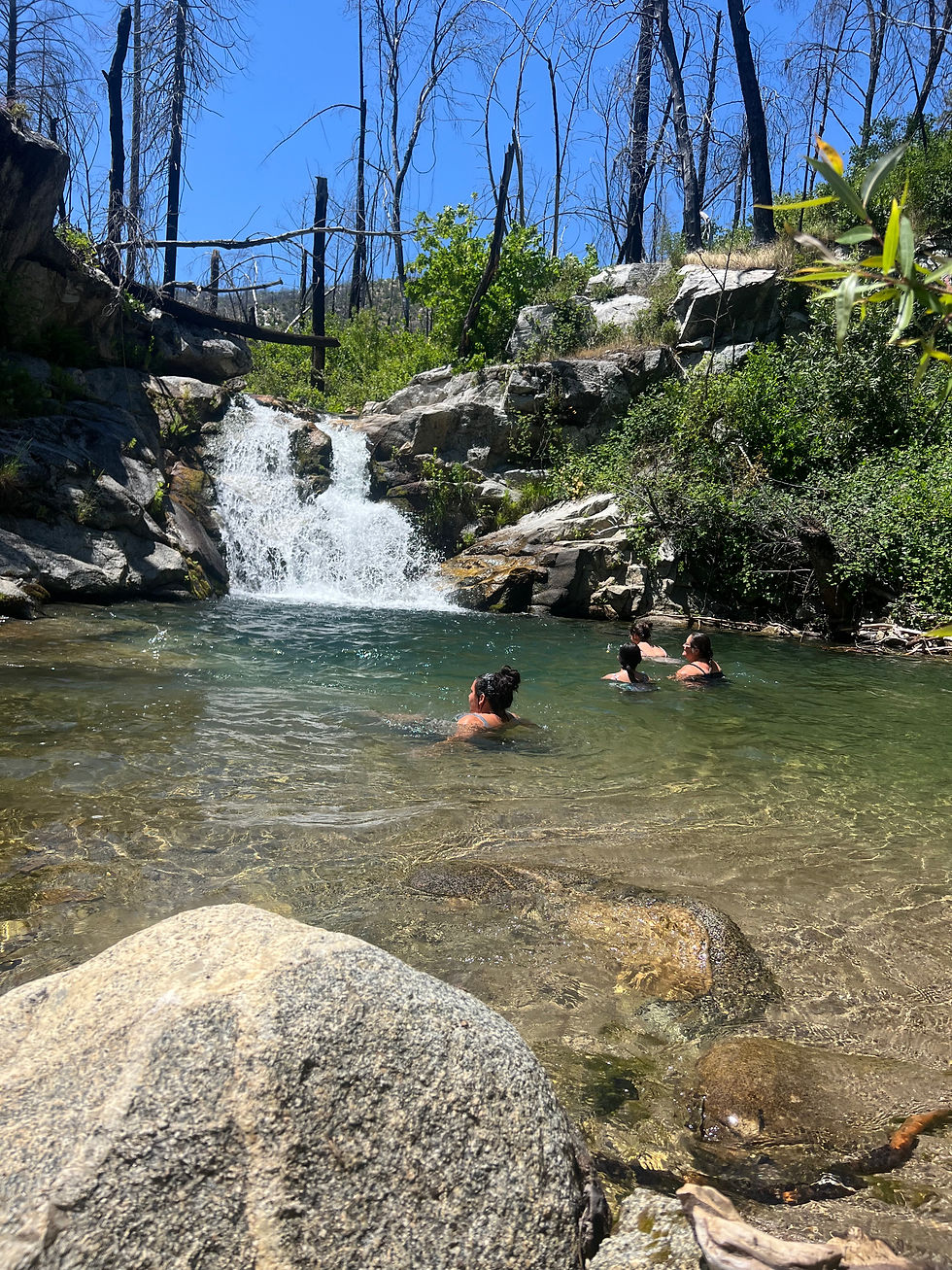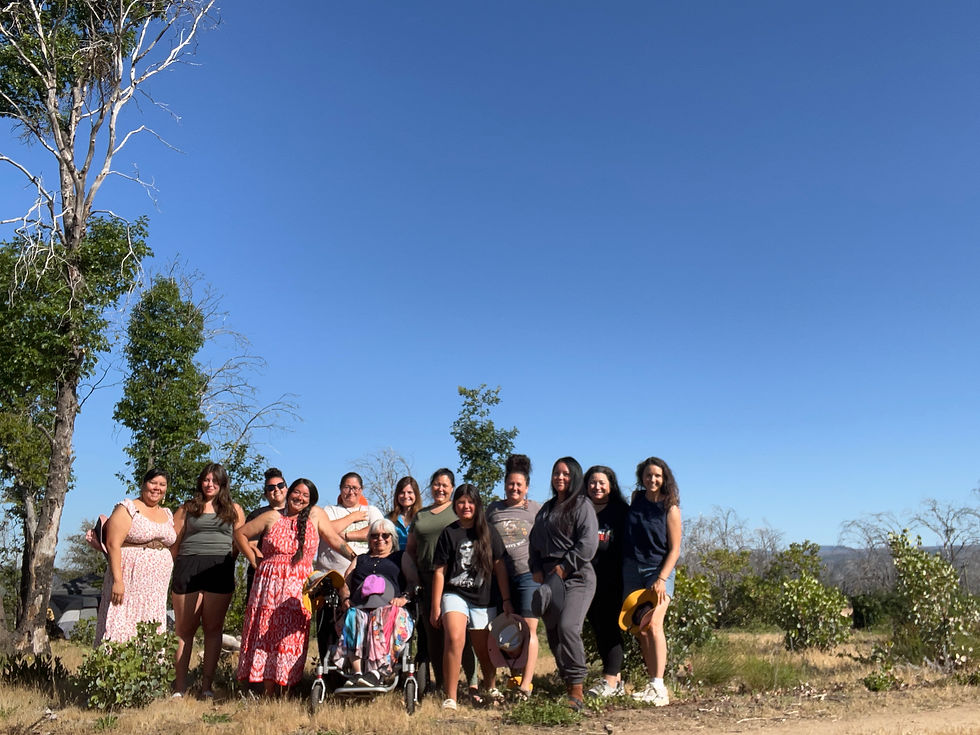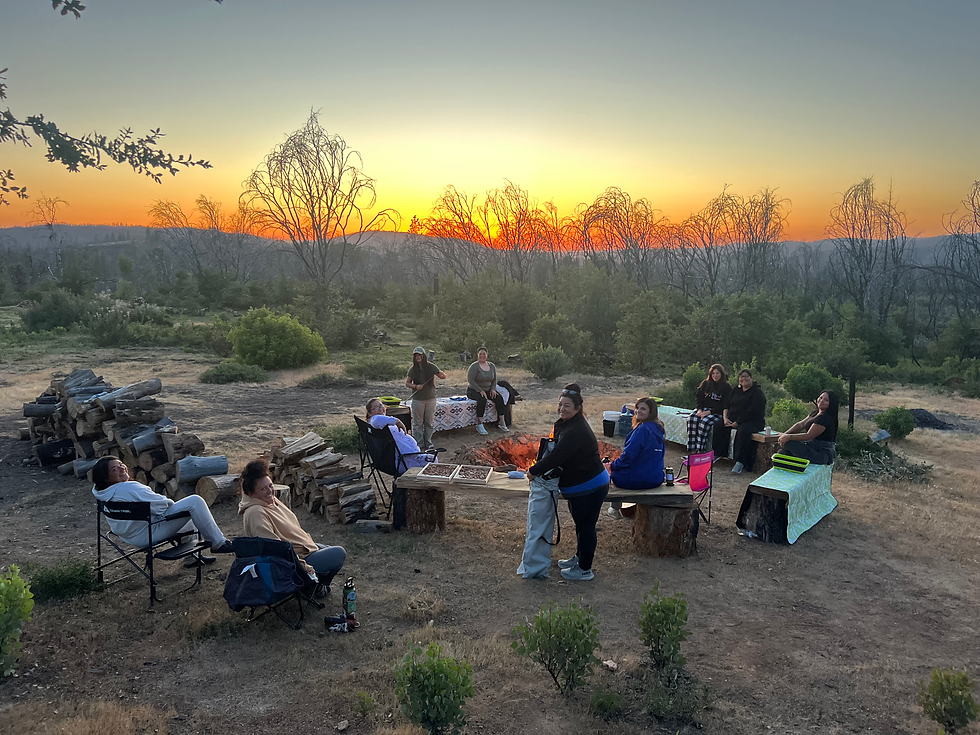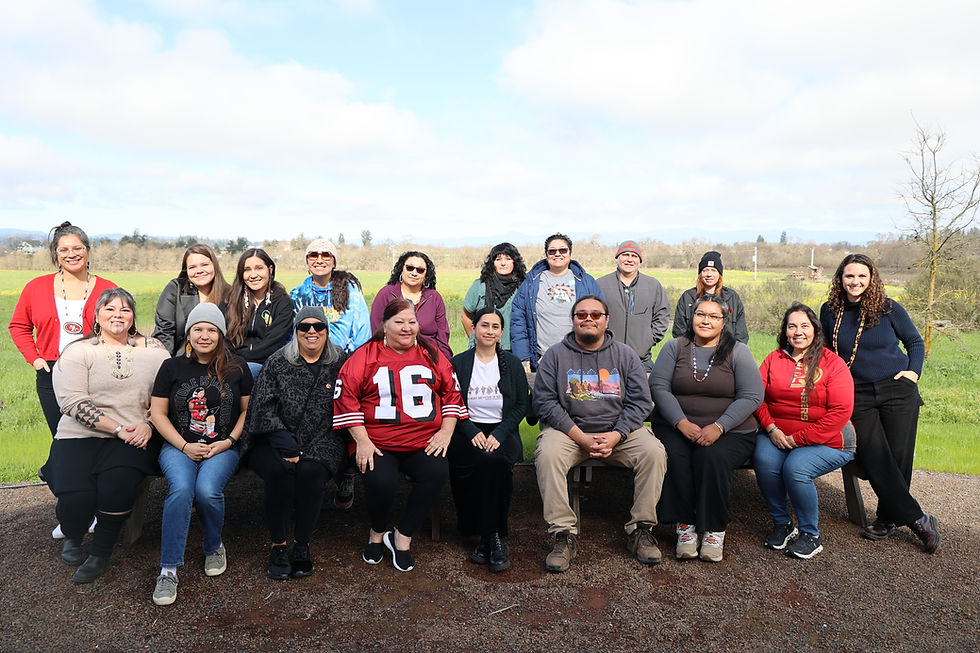Director's Update: Water, Fire, and the Work of Coming Home
- Redbud Resource Group

- Jul 24, 2025
- 3 min read
By Taylor Pennewell, Co-founder, Executive Director

There’s nothing like the shock of plunging into freezing spring water in the height of summer. In Maidu country—especially across the Sierra Foothills—it often feels like we’re starved for water. The grasses lining the highways stand tall and brown, ready to burn. Temperatures soar well into the 110s, hot enough to send even the lizards running for shade. Many hills still bare burn scars, their exposed soils baking beneath the sun’s full force.
And in many ways, we are water-starved. A drive up Highway 70 from Oroville to Quincy reveals the full extent of water engineering in our homelands. Dams and powerhouses line the route, part of the so-called “Stairway of Power”—a system that corrals cold, fresh spring water, storing and rerouting it through aqueducts, canals, and reservoirs to meet the needs of agriculture and cities. This infrastructure keeps water from flowing freely to the ocean—and from cooling the river systems that once nurtured spawning salmon. It also prevents water from reaching the meadows and valleys that once nourished Maidu communities with food, medicine, and animal relatives.
But it’s not only the State Water Project that distances us from our waters. The Central Valley’s agricultural industry pulls so heavily on the land’s resources that it depressurizes the foothills above, weakening sacred springs—springs that once leached our acorns, offered shelter from the heat, and ensured seasonal abundance.
And yet, these same systems that sever our connection also make it that much more sacred when we do find water. To hear it, to smell it, to feel it—momi—is to experience ceremony.
This summer, Maidu women from across the foothills gathered at Hyhcem Kumbali, a Land Back site now stewarded by Berry Creek Rancheria, for a weekend of reconnection, cultural education, and healing. Hosted by Redbud Resource Group and Redbud Botanicals, the gathering offered a safe space for adult women to learn about traditional plant and flower medicines on our own land.

Water showed up in many ways—and so did her sister, fire. The North Complex Fire swept through Hyhcem Kumbali in 2020, devastating the land but also opening a path for its return to the tribe. The fire marked the end of a water-siphoning cannabis farm and the beginning of Tribal stewardship. Today, TEK crews tend the riparian corridors with care, restoring oaks, maples, and native grasses by hand—welcoming the water back.
The results are undeniable. Our flower relatives now bloom in abundance, painting the meadows with color and medicine. Guided by Magan Herrera, we welcomed them home—and they welcomed us in return. Lying among them, we felt the weight of our bodies pressed into the soil, the pulse of spring water flowing beneath the mountain. The land is full of water, waiting to rise through cracks in the rock, waiting for us to guide it toward the soil that holds our seeds.
Just down the road, where our cemetery stands, our ancestors sang to us—reminding us that we are of this place. We are the dirt, the water, the stone, the flowers themselves. It was a moment of mutual recognition, grounded in strength, reciprocity, and renewal.
Water cleansed us, too—of worry, pain, and exhaustion—making space for self-care, creativity, and dreams of a brighter future. Loaded into pickup beds, we bumped down rough roads to the creek that once fed our grandparents’ allotment lands. There, a waterfall winds its way toward Lake Oroville, forming pools and natural jets framed by lilies, azaleas, and peppernut flowers. Burned pines tower above, a living tension between life and death on this land. Together—as cousins, friends, mothers, and grandmothers—we plunged into the water, receiving its medicine as it washed away our stress and renewed our commitment to home.
This creek always gives—emotionally, spiritually, physically—to those willing to receive.
Afterward, we gathered around the bonfire pit, dug just the week before by the men of the tribe. Cleansed, joyful, and connected, we sat in gratitude—reminded that we come from this place, and that we will one day return to it, to the water and fire that keep the cycles of life and death in motion.

If you want to learn more about our Women and Youth Programming, sign up for our newsletter to stay connected: https://www.redbudresourcegroup.org/







Comments